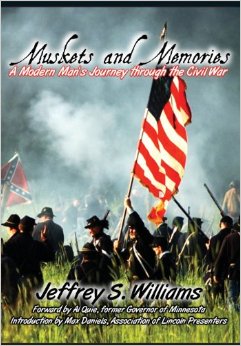On this date, April 23, 1813 - 198 years ago, Illinois Senator Stephen A. Douglas was born in Brandon, Vermont. Douglas life was instrumental in the policies that led to the Civil War. He even debated Abraham Lincoln years before the Lincoln-Douglas debates while the two of them were practicing attorneys in Springfield, Illinois.
His wikipedia entry can be found here.
From the Stephen A. Douglas Association:
Stephen A. Douglas was twenty years old in 1833 when he left his native Vermont for the frontier state of Illlinois, where he arrived penniless and without friends. Within a year Douglas began practicing law in Morgan County. The young lawyer was a zealous admirer of Andrew Jackson, and his defense of Jackson earned him the nickname “The Little Giant.”
From an obscure beginning in Illinois politics, Douglas eventually became one of the nation’s most powerful politicians and one of the finest legislators in Illinois history. He was a member of hte General Assembly from 1836 to 1837. In 1837 he made Registrar of the Land Office in Springfield. Douglas served as Secretary of State from 1840 until his appointment to the Illinois Supreme Court in 1841. He was elected to Congress in 1843 and to the Senate in 1847. As a senator, Douglas was influential in guiding the nation through the turbulent era before the Civil War.
As a “western” senator, Douglas wanted legislation that would benefit both his section and Illinois. He was an early advocate of the transcontinental railroad with Chicago as the terminus. Douglas fought for a northern route even though a southern route seemed the most logical. It was to this end that he introduced the Kansas-Nebraska bill in 1854. To obtain southern support for his plan, Douglas allowed a repeal of the Missouri Compromise, which has prohibited the extension of slavery north of Missouri.
Northern opposition to the repeal of the Missouri Compromise was an unexpected blow for Douglas. The senator believed that the slavery issue would be settled either by climatic conditions or by popular sovereignty. Douglas was influential in developing the Compromise of 1850, which provided for popular sovereignty in the territories. Under this plan each territory was to decide by a mandate of its voters if slavery would be acceptable. Although sovereignty seeemd democratic, it ultimately failed; neighboring slave states and free states sent voters into the territory on election day to stuff ballot boxes. Border warfare also resulted from the two sides trying to gain the upper hand. Kansas was such a battleground. The term “Bloody Kansas” has been used ever since to depict the struggle that ensued.
Douglas ran for re-election to the United States Senate in 1858. His opponent was a little-known Illinois politician named Abraham Lincoln. The two conducted their now-famous series of debates during the campaign. The Lincoln Douglas debates offered each candidate the opportunity to further express his opinion about the slavery question. Lincoln was not an abolitionist, but he did want to stop slavery from spreading into new areas. Douglas, who had seen a secesion movement in 1850, believed that to prohibit the spread of slavery by legislation was to invite civil war.
Douglas won re-election in 1858. The debates, however, brought Lincoln into national prominence. The two men from Illinois faced each other again in the 1860 presidential election. Douglas had waited a long time to be the Democratic presidential candidate, but was defeated because of a badly divided party. After Lincoln’s victory, Douglas went south to make personal appearances for sectional reconciliation. The times proved to be too volatile, and Douglas failed to slow the secessionist movement.


This can be something I need to do more research into, i appreciate you for the post.